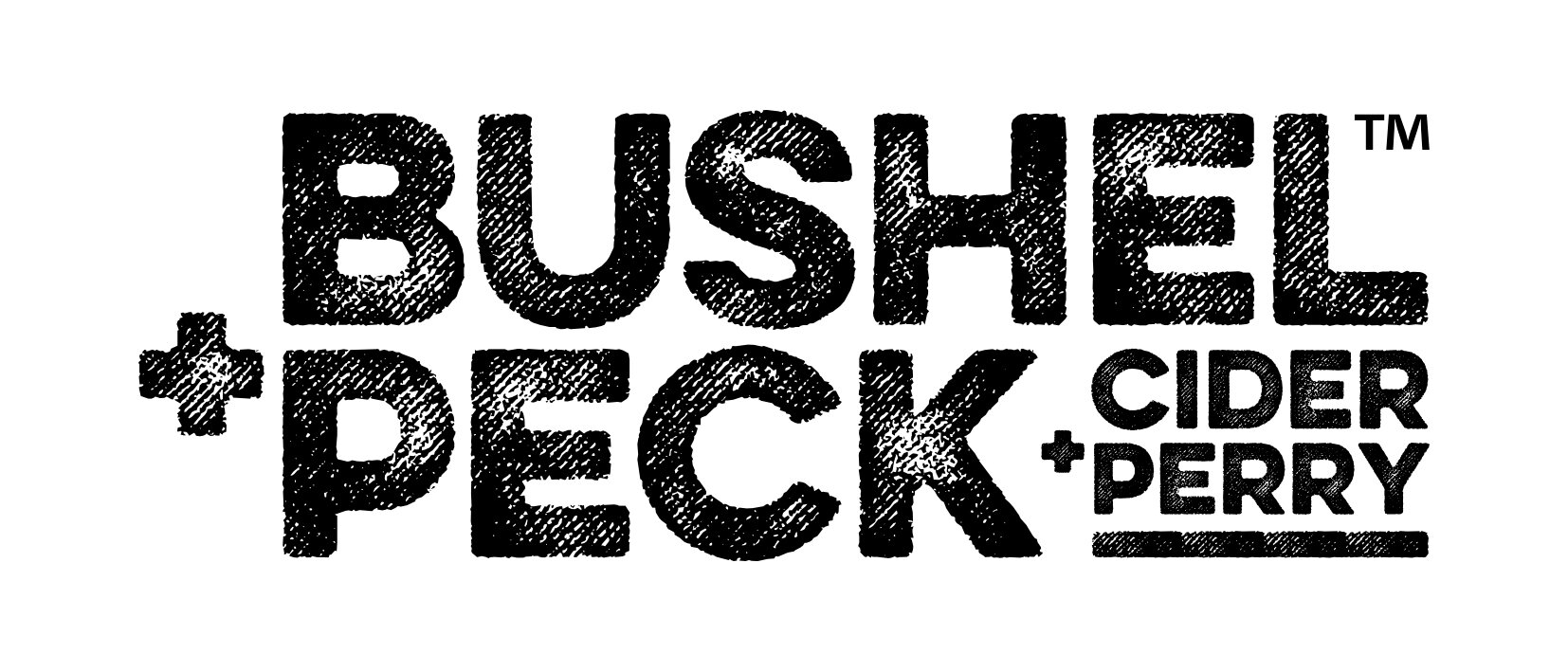Cambridge Quoining and Hagloe Crab …
We're often asked, by potential customers as well as members of the public, what makes our cider different. Well, aside from the fact that every cider-maker has their own way of doing things and we're the only ones making Bushel+Peck cider, we hope that the way we go about things makes us just a bit different. It's become a bit of a mantra … we only use UNSPRAYED apples from GARDENS and TRADITIONAL ORCHARDS …for good reasons. Many other cider-makers do the same thing, in British Columbia, in Asturias, in Normandy, we hope wherever cider is made. We only use fruit from GLOUCESTERSHIRE, as it's our home county, and of other cider-makers in Gloucestershire, we know of some who are equally committed to the environment to use only UNSPRAYED fruit from TRADITIONAL ORCHARDS: our friend Tim Andrews of Orchard Revival, for instance. Anyhow, we don't necessarily see ourselves as being in competition with our fellow Gloucestershire cider-makers; sure, our products may be for sale in the same shops and we may be trying to get them into the same pubs, but we are - for the most part - helping to keep Gloucestershire's fruit growing traditions alive, however we go about things and whatever our different motivations might be.
That said, when BBC Radio Gloucestershire paid us a visit earlier this week , we were able to show them fruit that had come from Alston, Ashleworth, Chaxhill, Eastington, Longney, Rodley, Tetbury, Upton St. Leonard, Westbury on Severn and Winchcombe. Today we added a load of apples from Uckington, on the outskirts of Cheltenham, to that list. Can't be certain, but we think this makes us unique; our cider is an expression of Gloucestershire in all its geographical diversity, not just a small part of it, in a way no other cider is.
The orchard in Uckington is both interesting and valuable. It's a reference orchard, a “mother orchard”, an orchard that is a repository of most, if not all, of the apple varieties that come from Gloucestershire. Little more than twenty years ago, many of these were on the verge of extinction, reduced in some instances to a single tree. Now, thanks to the herculean efforts of people like Charles Martell and Jim Chapman, a sample of each of these trees is kept in these few heritage orchards, helping to keep alive the unique sequence of DNA that each variety represents, a unique sequence of DNA that has emerged by accident or design, well-suited to the climate, soil and topography of a particular part of Gloucestershire. Who knows what the future holds? One of these varieties may be resistant to an yet-to-be-discovered disease, or be better able to withstand the changes in climate that are coming our way. That's why these orchards and these varieties are valuable.
One of the varieties we picked today was the Longney Russet. We've come across this before, in Longney (strangely enough). It's not one of our favourites; it has a thick skin, it's aroma is unappealing, it isn't particularly juicy and it tastes of nothing in particular. But it grows well and crops abundantly. One day, these qualities, possibly merged with another variety, may be more useful than they seem today.
On a chirpier note, this small orchard provided us with a kaleidoscope of colour and taste that we've never experienced before. Cambridge Quoining, Hagloe Crab, Hunt's Duke of Gloucester, Tewkesbury Baron, Corse Hill, Over Apple, Foxwhelp (yes, Foxwhelp, a Gloucestershire variety first recorded in 1653, notwithstanding Herefordshire’s attempt to claim it for itself!!), Nine of Diamonds, and others. We're almost certain no other cider-maker includes all these varieties in their repertoire.
We will include such fruit, not to be different for the sake of it, but to demonstrate, to gardeners and farmers and land-owners as well as to ourselves, to our customers and to those who drink our ciders, that this diversity of fruit is valuable, has practical use, that they are all still worthwhile. Dabinett and Yarlington Mill may help to make wonderful cider - and we use these apples in abundance, because that is what is available - but our ambition is to make a single variety cider from Cambridge Quoining, because it’s such a good looking apple, it has a robust flavour and it deserves to be recognised and appreciated.
That really would be different.
And thank you for indulging us, if you've read this far, and THANK YOU to Martin Hayes for obtaining access to the Uckington orchard. The not-for-profit Trust Juice apple juice brand will benefit from our use of the apples from this orchard and, in turn, the Gloucestershire Orchard Trust will receive funding from sales of Trust Juice.





